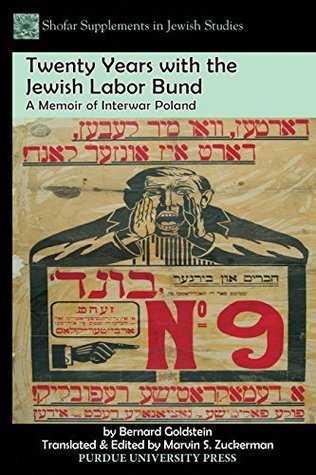What do you think?
Rate this book


In Warsaw, a city with over 300,000 Jews (one third of the population), Bernstein was the Jewish Labor Bund’s “enforcer,” organizer, and head of their militia—the one who carried out daily, on-the-street organization of unions; the fighting off of Communists, Polish anti-Semitic hooligans, and antagonistic police; marshaling and protecting demonstrations; and even settling family disputes, some of them arising from the new secular, socialist culture being fostered by the Bund.
Goldstein’s is a portrait of tough Jews willing to do battle—worldly, modern individuals dedicated to their folk culture and the survival of their people. It delivers an unparalleled street-level view of vibrant Jewish life in Poland between the wars: of Jewish masses entering modern life, of Jewish workers fighting for their rights, of optimism, of greater assertiveness and self-confidence, of armed combat, and even of scenes depicting the seamy, semi-criminal elements. It provides a representation of life in Poland before the great catastrophe of World War II, a life of flowering literary activity, secular political journalism, successful political struggle, immersion in modern politics, fights for worker rights and benefits, a strong social-democratic labor movement, creation of a secular school system in Yiddish, and a youth movement that later provided the heroic fighters for the courageous Warsaw Ghetto Uprising.
Hardcover
First published March 15, 2016